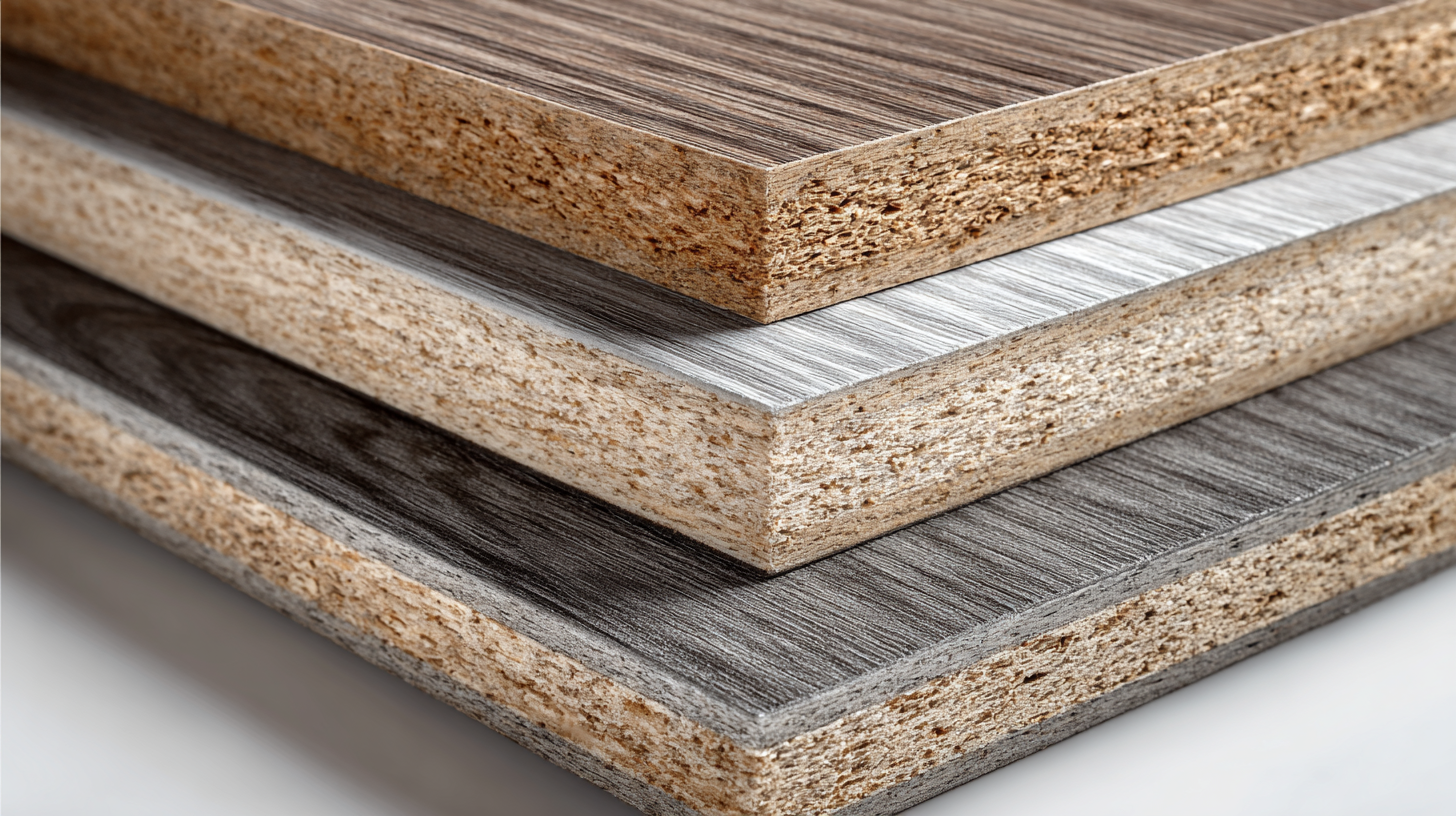Shandong Xiangying New Materials Technology Co., Ltd.
Shandong Xiangying New Materials Technology Co., Ltd.
In the rapidly expanding market for WPC boards (Wood-Plastic Composites), selecting high-quality suppliers has become a crucial factor for manufacturers and businesses aiming to meet the demands of both construction and consumer sectors. According to a recent report by MarketsandMarkets, the global WPC market is projected to reach USD 10.4 billion by 2025, growing at a CAGR of 12.2% from its current valuation. However, with such growth comes a myriad of challenges, including supply chain inconsistencies, varied product quality, and fluctuating prices. Identifying reliable suppliers becomes essential in ensuring that businesses not only maintain competitive pricing but also uphold standards that cater to consumer safety and sustainability. This guide aims to equip you with the knowledge and tools necessary to navigate the complexities of sourcing quality WPC boards in today’s global marketplace.

When searching for quality WPC (Wood Plastic Composite) board suppliers, several key characteristics can help you identify reputable partners. First and foremost, the supplier’s experience in the industry plays a crucial role. Suppliers who have been in the market for several years tend to have a deeper understanding of material sourcing, production processes, and the specific needs of their customers. Look for suppliers with a proven track record of delivering consistent, high-quality products, as their established presence often indicates reliability.
Additionally, transparency in sourcing and manufacturing processes is vital when evaluating potential WPC board suppliers. Quality suppliers share their production techniques and are open about the materials they use, including the ratios of wood fiber to plastic and any additives involved. Certifications and compliance with industry standards are also telltale signs of a quality supplier. Ensure that they can provide relevant documentation, which not only reflects adherence to quality but also assures sustainability in sourcing practices. An engaged supplier who willingly shares information is often more likely to prioritize quality and customer satisfaction in their operations.
When sourcing quality suppliers for WPC (Wood Plastic Composite) boards, understanding supplier certifications and compliance standards is crucial. These certifications not only validate the supplier’s credibility but also ensure that the products meet specific industry requirements. Look for suppliers who hold certifications such as ISO 9001, which indicates a robust quality management system, and other relevant environmental certifications that highlight their commitment to sustainable practices.
**Tips:** Always request copies of certification documents before entering into a partnership. This not only establishes transparency but also helps you gauge the supplier's emphasis on quality. Additionally, ask about the supplier's compliance with local and international standards to ensure that their products are safe and reliable.
As you evaluate potential suppliers, consider their manufacturing practices. Suppliers adhering to ASTM standards for WPC products often demonstrate consistency in quality and performance. Investigate whether they participate in third-party audits, which can provide additional assurance of their commitment to quality control.
**Tips:** Conduct site visits whenever possible to observe the manufacturing process firsthand. This can reveal a lot about the supplier's operational capabilities and quality assurance measures, giving you further confidence in your purchasing decisions.
When it comes to sourcing high-quality Wood Plastic Composite (WPC) boards, understanding a supplier's manufacturing processes and technology is crucial. Recent industry reports indicate that over 55% of consumers prioritize durability and sustainability, making the choice of materials and production techniques pivotal. A supplier’s investment in advanced technologies, such as automated extrusion and advanced mixing systems, can significantly influence the structural integrity and longevity of the final product. For instance, companies employing state-of-the-art extrusion processes are able to achieve more consistent product densities, reducing defects and enhancing performance.
Moreover, consideration should be given to the supplier's adherence to international standards and certifications. According to a market analysis by Smithers Pira, over 70% of suppliers who comply with ISO 9001 quality management standards report higher customer satisfaction rates and fewer returns. This correlation highlights the importance of efficient manufacturing practices that are aligned with global quality benchmarks. Identifying suppliers that not only utilize advanced technology but also prioritize quality management will ultimately ensure the procurement of superior WPC boards, meeting both consumer demand and industry regulations effectively.
 When embarking on the journey to identify quality suppliers for WPC boards, understanding supply chain transparency and reliability becomes paramount. Transparency in the supply chain allows buyers to track the origins of their materials, ensuring they meet environmental and ethical standards. It also facilitates better communication between suppliers and buyers, enabling a more seamless integration of resources and reduction of uncertainties throughout the production process. When suppliers openly share their sourcing practices and production methodologies, it reinforces trust and enhances the buyer's confidence in their manufacturing capabilities.
When embarking on the journey to identify quality suppliers for WPC boards, understanding supply chain transparency and reliability becomes paramount. Transparency in the supply chain allows buyers to track the origins of their materials, ensuring they meet environmental and ethical standards. It also facilitates better communication between suppliers and buyers, enabling a more seamless integration of resources and reduction of uncertainties throughout the production process. When suppliers openly share their sourcing practices and production methodologies, it reinforces trust and enhances the buyer's confidence in their manufacturing capabilities.
Reliability, on the other hand, is crucial for maintaining consistent quality and timely deliveries. A reliable supplier not only adheres to agreed-upon schedules but also offers a quality assurance process that minimizes defects and delays. To gauge this reliability, potential buyers should investigate a supplier's track record, customer reviews, and industry certifications. By prioritizing suppliers who prioritize both transparency and reliability, purchasers can significantly reduce risks associated with sourcing WPC boards, ensuring a smoother procurement process and ultimately achieving better project outcomes.
When selecting quality suppliers for Wood Plastic Composite (WPC) boards, the importance of customer reviews and case studies cannot be overstated. According to a survey by Statista, around 93% of consumers read online reviews before making a purchase decision, highlighting the significant impact of customer feedback on supplier credibility. In the WPC industry, positive reviews often reflect a supplier's commitment to quality and service, assuring buyers that they are making informed choices.
Case studies also play a critical role in assessing supplier performance. For instance, a report by the Freedonia Group indicates that the WPC market is expected to reach $5.3 billion by 2028, driven by increased demand for sustainable building materials. Analyzing case studies from successful projects can provide insights into how a supplier's products perform in real-world applications. For example, a leading supplier’s case study showed a substantial decrease in material waste and maintenance costs for outdoor decking, demonstrating their product's long-term value. By focusing on customer reviews and relevant case studies, buyers can significantly enhance their purchasing decisions in the competitive WPC board market.

